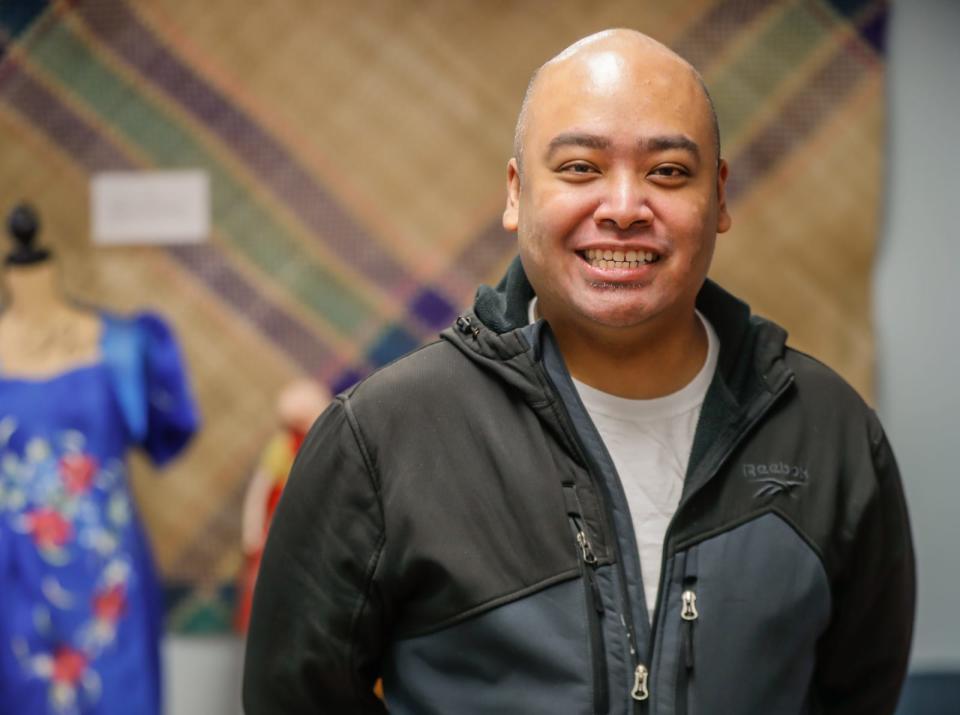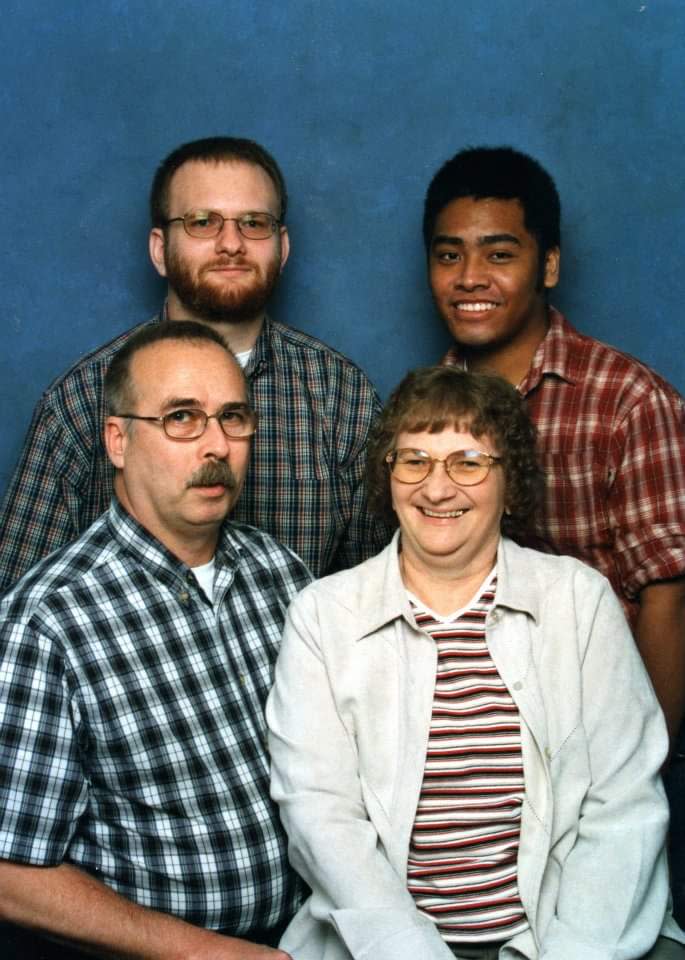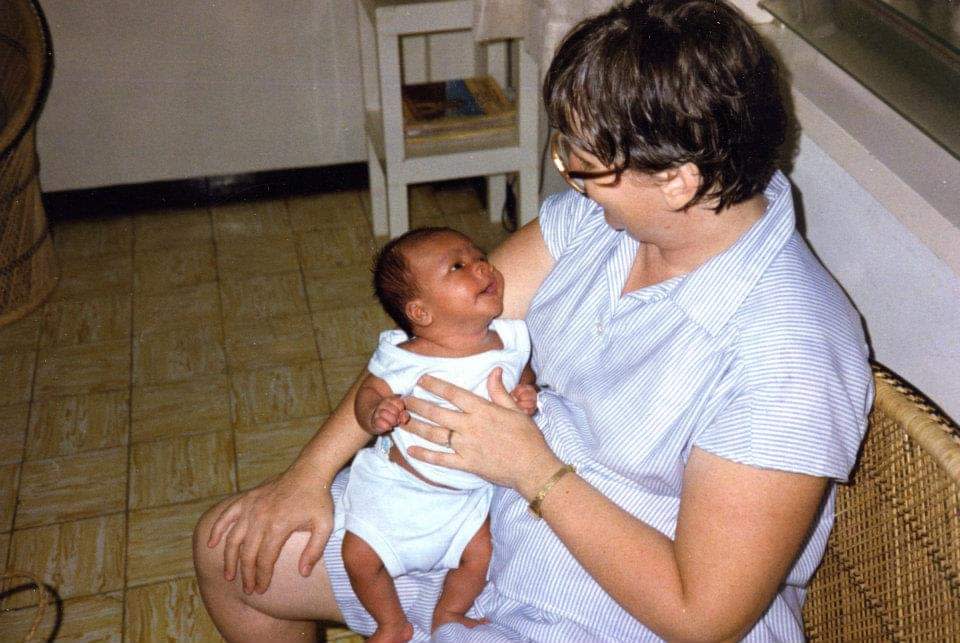He went to the Philippines looking for answers. He returned with a mission.
After an argument at elementary school nearly 30 years ago, Philip Smith remembers coming home, looking in the mirror and trying to “wash off” his brown skin.
The other student had pointed out that Mrs. Smith, one of the school teachers, couldn’t possibly be Philip’s mother.
She was white and Philip was not.
The exchange opened up a frightening complexity for the first-grader.
‘Who's my mom?’
‘Why did he say that?’
‘Why am I brown?’
He asked those questions at home that night — and for years to come.
As an adoptee originally from the Philippines, Smith, now 35, has grappled with identity and race for his entire life. He traveled back to find his biological family in 2010 and has made dozens of visits back to his birth country since. Like many adopted Americans, Smith’s journey stemmed from a desire to answer those questions for his own sake.
Yet today, in his home of Indianapolis, it’s not just about him — Philip Smith — anymore. Over the years, he has channeled that inner work outward, spreading Filipino culture here with pride and serving as an ambassador of sorts at the Philippines Cultural Community Center, which he co-founded in 2021. He has learned that not fluently speaking Tagalog doesn't make him any less Filipino, and being raised by adopted American parents doesn't make him any less their son. His identity is his own to forge.
“This is who I am,” Smith said. “This is who we are. And I want to make the center something that even other people … even if they have questions about who they are, their self-identity, they can come to the center … Because it's difficult when you walk that journey by yourself.”

Growing up, he always knew he was different from his family. The episode in first grade kicked off years of incidents reminding him of that fact. Being asked “one check or two?” when grocery shopping with his mom, for instance. Or getting into a car accident in high school and remembering his mom repeatedly asserting, “that’s my son, that’s my son,” so she would be allowed into the hospital with him.
But it wasn’t until college, a visit to a friend’s home specifically, that his true journey into self-discovery began.
“I saw this family picture and they all look alike,” Smith remembers. “They all have the same nose, same distance between the eyes and such. And I just realized that I didn't look like that in my family photo. And at that point … that just kind of planted the seed of curiosity really. Like, who am I?”

After that, he ventured onto a “path of the unknown,” he said, and began picking up remnants of his heritage in his daily life. He joined the Navy, and for the first time, met and befriended other Filipino Americans. He began attending Filipino church and exploring Filipino foods while living in Virginia Beach, Virginia, where he insists that some dishes, like fried bananas, gave him an indescribable feeling of déjà vu of his early childhood, thousands of miles away.
Indianapolis' diversity: Latino Hoosiers lead Indianapolis' population growth among racial and ethnic groups
Inspired by his cultural immersion, he took the plunge and started digging into his past. Based on just a few adoption papers — in a language he didn’t speak — a Filipino government website and Facebook, he connected with his biological family.
At the age of 23, he booked a flight and headed overseas.
The Smith family
James and Donna Smith ended up in the Philippines for missionary work in the late 1980s.
They always felt like they did things their own way — putting themselves through college, twice, Donna Smith recalls. James Smith said he chose to attend Bible school instead of studying nuclear science, doing “what he thought was right” for his life, rather than following the money.
“We kind of determined our own fate,” Donna Smith said. “We decided what we were gonna do … and didn't really have a factor on what everybody else thought. And that’s the way we raised our kids.”
When they moved to the Philippines, they already had one son, David. But they’d experienced several heartbreaking miscarriages over the years, including one in the Philippines. That baby would have been the same age as Philip now, she said.
“After you lose a couple of babies, your arms start to ache to hold a little baby again,” Donna Smith said. “Phil was kind of the answer to our prayers, you could say.”
Through word-of-mouth and pure chance, they heard about a tenant farmer family on another northern island hundreds of miles away. They already had seven or eight kids, and the family was struggling financially — would James and Donna be interested in adopting their baby?
After a major typhoon and travel to the capital city Manila, they adopted Philip when he was a week old.
Camp Atterbury: 7,200 Afghan refugees came to Indiana as guests. 6,000 have found new homes in the U.S.
His chosen name, they say, is just a coincidental namesake for his birth country. They already had a list of Bible names picked out, David Smith went to their first-born and Paul went to their second son, who was stillborn. "Philip" happened to be the next one.
"I was holding Philip as he's looking down at me, staring at me, looking like, 'Is this really gonna be my mom?" Donna Smith laughs, remembering one of the first times she held him as a baby. "You could almost put in words into his mouth, saying, 'What? Another mother??'"
And she hasn't let go since.
"We wouldn't give him up for nothing," she said. "He's ours, and we'll keep him."

'I was home'
Philip Smith’s first trip back to the Philippines was wildly unfamiliar on all fronts.
When a Filipino American friend encouraged him to take gifts back for his family members, he remembers thinking, “If anything, they should get me something because I’m coming back.”
But the gifts didn’t have to be big or extravagant, his friend explained. They could just be simple tokens of American life, like nice towels or an Indy 500 T-shirt, anything “made in the USA.”
So, he arrived there and started passing out gifts to family members whom he was just meeting for the first time, whose language he did not speak. He handed out items one-by-one to his biological mother, but she barely gave them a glance and started crying. She must not like them, he thought, or she didn’t understand what they were for.
She said something in Tagalog, and Smith’s translator friend teared up, too.
“She doesn't care about the gifts as long as I came back and I found her,” Philip Smith remembers his friend explaining. “And that still resonates with me.”

They cried together and hugged, and he unlocked a new feeling of love in his life. “At that moment, I felt like I was home.”
The year after meeting his biological family, Philip Smith dove deeper, moving to the Philippines to imagine what his life would be like if he hadn’t been adopted.
He lived independently in Cebu for a year, away from his family, and worked various jobs — as a call center trainer, school counslor, water vendor and even a jeepney conductor, a type of public transportation created after WWII when American military “jeeps” were left behind.
“I was just flabbergasted,” Smith said. “You know, like, there's a lot more to the world than just Indiana or just the U.S.”
'Now what?'
Meeting his biological mother and living his “alternative” life answered a lot of questions, but it sparked many new ones, too.
“OK … I feel fulfilled,” he remembers thinking. “I feel complete now. Now what? I asked that question again to myself, ‘Now what?’”
Asking that helped him reorient his mission in life, Philip Smith said.
He came back from the Philippines feeling grateful for his family here and how he was raised. He sees his purpose and identity here in Indianapolis, crystal clear after years of uncertainty, and that purpose is to help other people.
“He’s always been a leader, and he's always been doing things for other people,” Donna Smith said. “He likes to help.”
At home, he and his husband, Doug, are eager to grow their own family and maybe "make a difference in the world," Philip Smith said. They've have fostered several children over the years, from ages 2 to 11, and have tried unsuccessfully to adopt.
At the Philippines Culture Community Center, Donna Smith said, he is the “energy of that place.”
“He never does anything small,” James Smith added.

At a recent Saturday bazaar there, Smith fit the part. He showed off the center’s various offerings, from authentic Filipino artifacts and colorful dresses to freshly cooked food. Along with the food bazaar each week, they also offer activities such as cooking classes and movie nights, all open to anyone. Their next mission is to open a Filipino restaurant.
Smith hopes the center will help people find acceptance and belonging, no matter where they come from. Just as he was longing for, all those years ago.
“Culture is more than just skin deep sense,” Smith said. “It's how we're raised in a way, and at the end of the day, of course, we're all humans. So I hope that this center can attract more people, not just Filipino Americans, but people of other ethnic descent."
"We're all tied together in one way or another.”
Contact Rashika Jaipuriar at rjaipuriar@gannett.com and follow her on Twitter @rashikajpr.
This article originally appeared on Indianapolis Star: Indianapolis man finds identity and purpose in the Philippines

